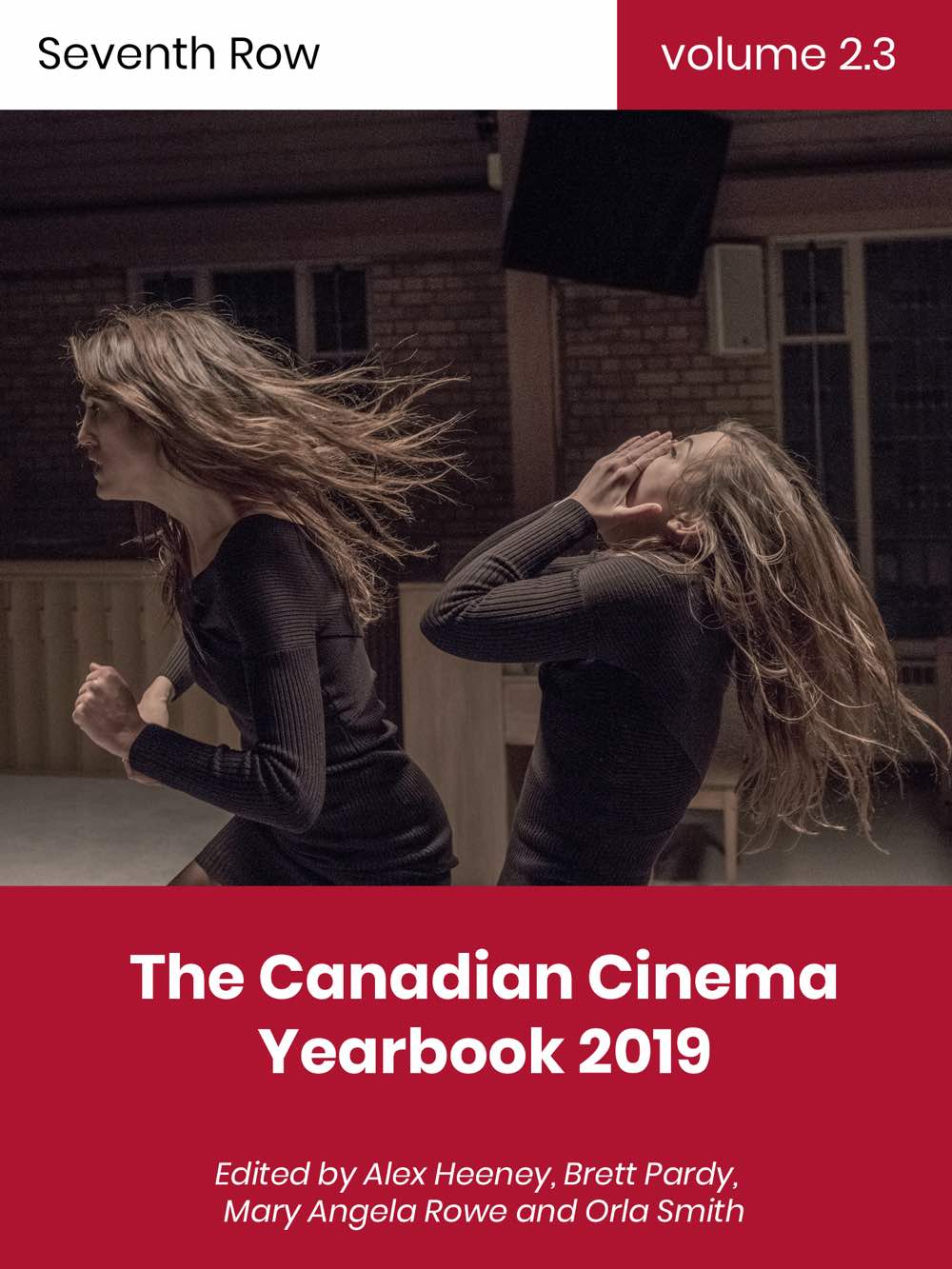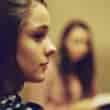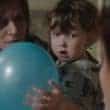Rebecca Addelman discusses Paper Year, fictionalising her first marriage into her feature debut, which took years of rewrites, great casting, and generous collaboration. This is an excerpt from the ebook The Canadian Cinema Yearbook which is available for purchase here.
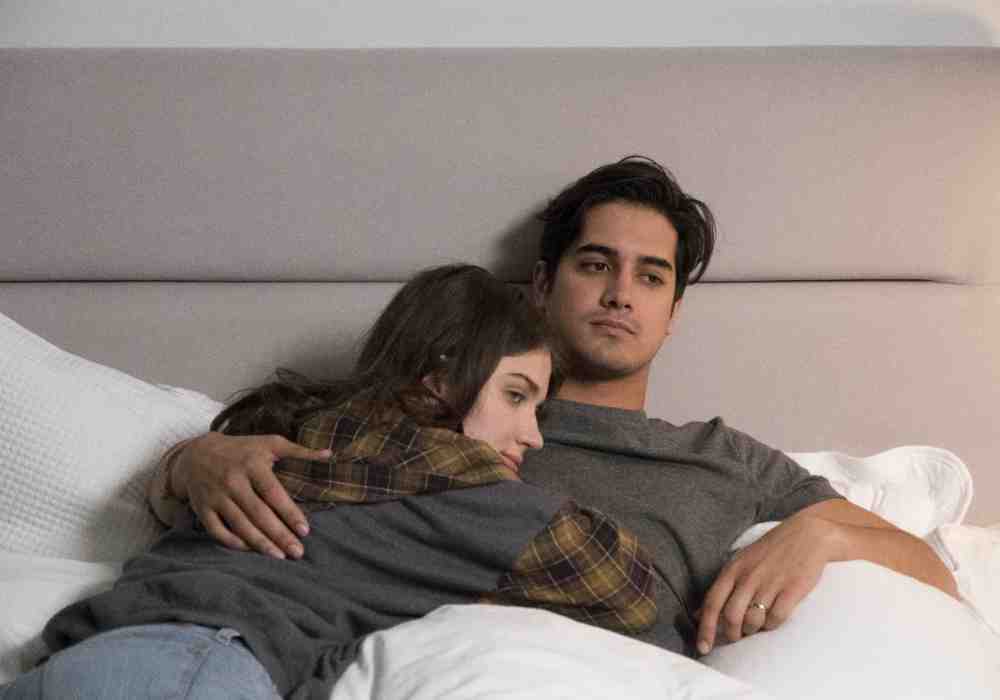
Rebecca Addelman’s feature debut, Paper Year, begins in a whirl of ecstasy. Twentysomethings Franny (Eve Hewson) and Dan (Avan Jogia) just got married, and they run from their community hall ceremony in a fit of joyful laughter and rapturous embraces. We’ll never see them this deliriously happy again.
What follows is a patient, observant look at their first year of marriage, and the regrets and troubles that spawn from such an impulsive, passionate union. Once the dust settles, doubts about the marriage start to creep up on both, but they try to make the most of it. The film is episodic in the way it follows Franny’s and Dan’s various trials and triumphs, both separately and together — although Addelman positions the film largely from Franny’s perspective.
Paper Year is very personal, inspired both by her own divorce and by her experiences with sexual harassment in TV writers’ rooms. Franny’s new job writing for a game show provides ample ground to explore the various forms of misogyny that women face in the workplace. Addelman’s personal experiences with this male-dominated environment means her take is strikingly nuanced. Franny’s problems aren’t just with the more overtly sexist producer, but also with a colleague, Noah (Hamish Linklater), whose attempts to save Franny from their boss’ advances simply mask another form of misogyny. What’s more, the film avoids patronising Franny, as she is just as aware of these men’s creepiness as we are.
I talked to Addelman about the years of rewriting it took to develop such a personal story into a script, the importance of great casting, and how truthfully reflecting the experience of being a woman in the workplace is inherently political.
Listen to our podcast about Paper Year and Take This Waltz
Seventh Row (7R): What came first: wanting to tell a story about women in the workplace, or wanting to tell a story about a young married couple?
Rebecca Addelman (RA): It was definitely telling a story about the couple. It was written in the wake of my own divorce, as a relatively young person. There are things in life that feel so seismic that they’re with you forever. I couldn’t write anything else until I wrote this.
I had a lot to say about being a young woman not just in the workplace, but in this kind of workplace, which is something I was very familiar with.
I just tried to put [Franny] in a place where nothing in her life was on stable footing, even this marriage. Marriage is supposed to be something that is so permanent and gives you a foundation in life. The way that Franny and Dan get married is so impulsive and, yes, full of love, but not done with caution and thoughtfulness.
7R: When you’re writing a story like Paper Year that’s so personal, how do you navigate the extent to which you’re going to fictionalise it?
Rebecca Addelman: It was rewritten a lot. I can barely remember the first draft, but I think that it’s quite probable that the first draft was closer to my life, just because it felt like a hairball that was caught in my throat.
I remember reading the early drafts thinking, “More things need to happen here.” My real life was, for me, emotionally exciting and turbulent, but it wasn’t actually that eventful. It wasn’t something that anyone would want to watch. So I started to fictionalise it based on what I now wanted the characters on the page to do and how I wanted them to treat each other — how I wanted that relationship to end, which is very different from how my relationship ended.
When you cast it, your brain has to crack open, because it’s no longer the person you pictured in your head. It’s someone completely different who brings their own experience and point of view to the character. It’s so great to have these incredibly talented new people come in and open up the project. Once I cast Eve Hewson in the role, she embodied it so well that I don’t watch her and think, “That’s me up on screen.” Nothing about it, anymore, reminds me of myself, besides some of the emotional journey she’s going through.
7R: Were there any rewrites after you finished casting Paper Year?
Rebecca Addelman: There were. The process of rewriting is so ongoing. Sometimes, a rewrite will just be one scene rewritten, or you’re cutting things, and then there’ll be a new draft that people will read. But other times, there might be a whole new idea that courses through the movie. That needs a bigger rewrite.
I remember, on the location scout, I was sitting with DP [Steve Calitri] and production designer [Zazu Myers], and we were talking about one scene that’s no longer in the movie. I would say “I don’t think it works,” telling them my concerns. I think it was Steve who pitched this idea for a different way to go, and we were all like, “that’s great!” We were eating fish and chips in a pub in Toronto, location scouting, and we rewrote it.
7R: How much time passed between your first and final drafts?
Rebecca Addelman: Maybe two years. Or two and a half.
7R: We get almost no context for what Franny’s and Dan’s relationship was like before the marriage. We simply watch this first year of marriage in isolation. Why did you approach the story that way?
To read the rest of the article, purchase a copy of The 2019 Canadian Cinema Yearbook here.
[wcm_restrict]
RA: I was inspired by the end of The Graduate [(1967)]. It’s such a fantastic, iconic ending: they make this rash, impulsive decision. She runs away from her wedding. They’re fueled by love, and you’re kind of with them. You think it’s very romantic. And then they get on the bus, and the camera keeps rolling. There’s this feeling of, now what? I wanted to start my movie there, in that moment, and see what happens for the young couple.
To be clear, I don’t think that the couple in my movie is like the couple in The Graduate. They’re very different situations. But emotionally that’s where I wanted to start things off: the impulsive high of making this grand decision, putting all your chips on love, and putting also all your chips on that feeling that you get when you’re young that you’re somewhat invincible. Life hasn’t knocked you around yet, so why would you expect it to?
7R: That opening scene, which shows Franny and Dan leaving their wedding ceremony, is shot in an incredibly disorienting, exciting way, using shaky-cam. It shows the sense of exhilaration that they feel in the moment… and then they have to deal with the consequences. How did you think about how the visual style in the rest of the film would build from, and stand in contrast to, that first scene?
RA: There’s a lot of handheld in the rest of the film — although nothing that compares to that jolting experience of the very beginning. I really wanted it to have that rush and energy in the opening.
I wish I could tell you that there was a grand plan, but my DP and I just sat down and discussed every scene: the emotional quality, what the story was… and then we discussed how the camera could be used to tell that story in the most effective way. That determined if it needed to a more stable, locked-off shot, or if it had to have some of that handheld energy.
Because of the indie budget and the indie nature of the movie, we were also limited in resources. We just had to work with what we had. We couldn’t afford things like steadicam, and we couldn’t afford a dolly very frequently. Sometimes, we’d encounter a new location, or we’d be thrown a curveball on the day of filming. We couldn’t do our plan, so we’d have to improvise. A lot of how it was shot was determined by the situation on the ground.
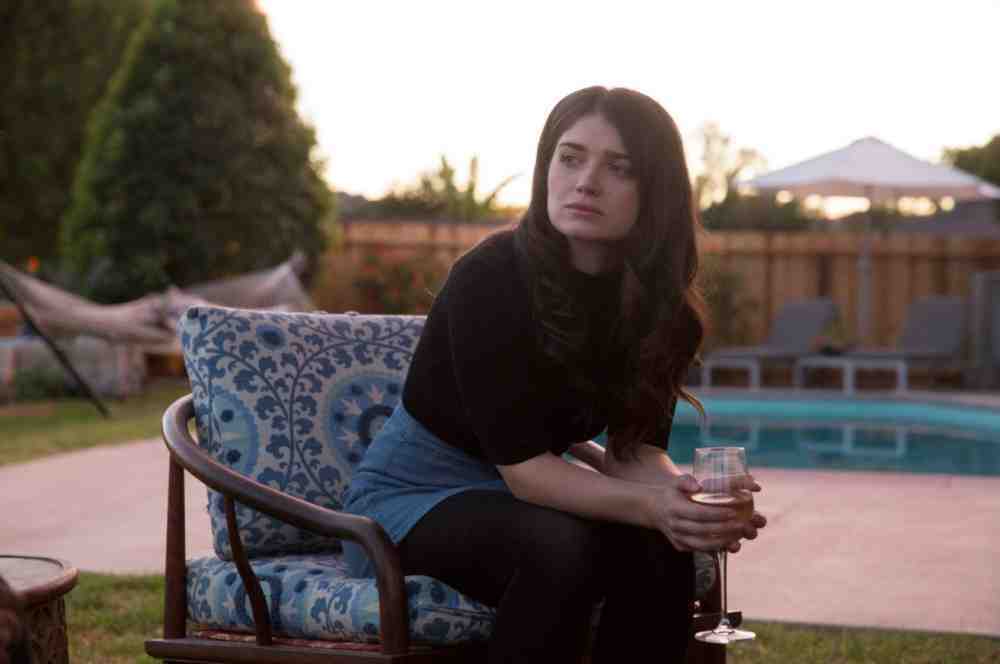
7R: You use sound in a really clever way. For example, when Franny and Dan are talking on the bed, facing in opposite directions, the sound of their voices changes when we cut between them. You really feel their disconnect with each other. How did you think about using sound throughout the film?
RA: I always thought that the movie was Franny’s movie, and that it was largely from her point of view. Even though the Dan character is huge and integral to the whole thing — we do see things from his point of view at times — I approached it all from, “How do we share her experience in the best way we can?”
Sound is such a great tool for being able to be inside someone’s experience — or outside of it, depending on the scenario. We put a lot of thought into, for example, the car sequences: what you could hear and what you couldn’t hear. And the things that essentially aren’t true to life that you could still hear in that scene. Things that replicated heartbeats. We were trying to feel very much in Franny’s body.
Sound design is a thing that, as a newer director, I’m just learning about and am really excited about. It can do so much.
7R: What was your process for working with your actors? Did you rehearse much? Even though you don’t show Franny’s and Dan’s history in the film, did you work on that with your leads?
RA: It was really important to me that the actors I’m reading with and speaking with had an understanding of what this couple in the script was going through. It was clear in that first conversation that Eve and Avan both connected to the characters and that they themselves had been through pivotal relationships like the one in the movie. I thought it was important to find people who didn’t necessarily need to know about my experience.
They say that every actor needs a different director, and I think that’s true. They both had different processes. They had different ways of approaching the characters, and we did rehearse some scenes. Eve is a craftsperson. She just digs into it. She studies with the best of them; she loves to do the work; and she does it somewhat internally. She’ll come to me with some questions, and we would have long discussions about the emotional makeup of the character, but she doesn’t need a lot of specific direction. She’s really got it.
It was a pleasure to work with such fine actors. If you’re casting people who have a connection to the role, they bring so much already, and it makes your job easier, as a director.
7R: I’ve rarely seen workplace sexism and harassment depicted in such a nuanced way. You show several types of creepy men, and even though Noah is definitely one of them, and Franny recognises that, her feelings toward him are a lot more complex. What made you want to approach this issue in the way that you did?
RA: The movie was written and shot before the real explosion of the #MeToo movement. I was not even trying to partake in that conversation, although watching the movie now, I’m like, “Oh, this very clearly is part of that conversation.”
I was honestly just reflecting my own experiences from when I was as a young writer in TV writing rooms — things that happen when you are a young woman who is trying to build a career in a historically male-dominated world. I still work in TV, and I have a lot of love for it, but there are these cultures there that you have to play along with. You have to become a part of that culture, or you basically won’t have a job.
I get a version of this question a lot, and I find it interesting that just by being a woman telling a version of my actual story, it’s somewhat political. Just telling the truth is galvanising. That’s why you need more people telling their stories and telling the truth about what they’ve lived. Franny doesn’t become a feminist warrior. She’s not fighting back; she wants to succeed in that culture.
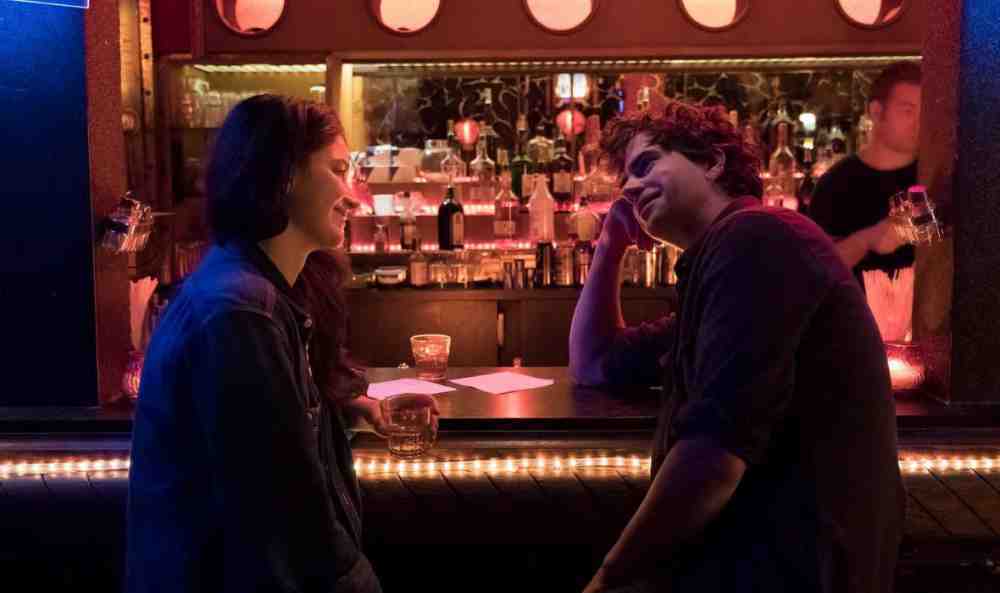
7R: What are you working on next?
RA: I’m part of a new programme, here in LA, for female directors. NBC is launching an inaugural season, where they’ve taken 10 female directors who have never directed television, or have only directed some television, and we are each directing an episode of TV for them. I’ll be directing an episode of Brooklyn 99.
I am also working on a TV series of my own that I’m in the process of pitching and selling, which I’ll hopefully be writing in the fall. And of course, there are a few features that I would love to direct next.
7R: Are your new projects as personal as Paper Year?
RA: The TV series is not, which is kind of fun. It’s personal, but not in such an obvious way. But I’m working on a feature script that’s more reflective of my life now, as a mom and a stepmom.
We recently dedicated a Special Issue to On Chesil Beach, another film about the problems a young couple encounters after marriage. Meanwhile, Rebecca Miller took more of a screwball comedy approach to a young woman’s marriage with Maggie’s Plan, and Rama Burshtein’s rom-com The Wedding Plan followed an Orthodox Jewish woman searching for a groom. We’ve also covered films that show happier, long-term relationships, like the traditional one in Paterson or the more unconventional marriage in The Artist and the Pervert, a documentary that looks at the role of BDSM in a relationship between two creative people.
[/wcm_restrict]
